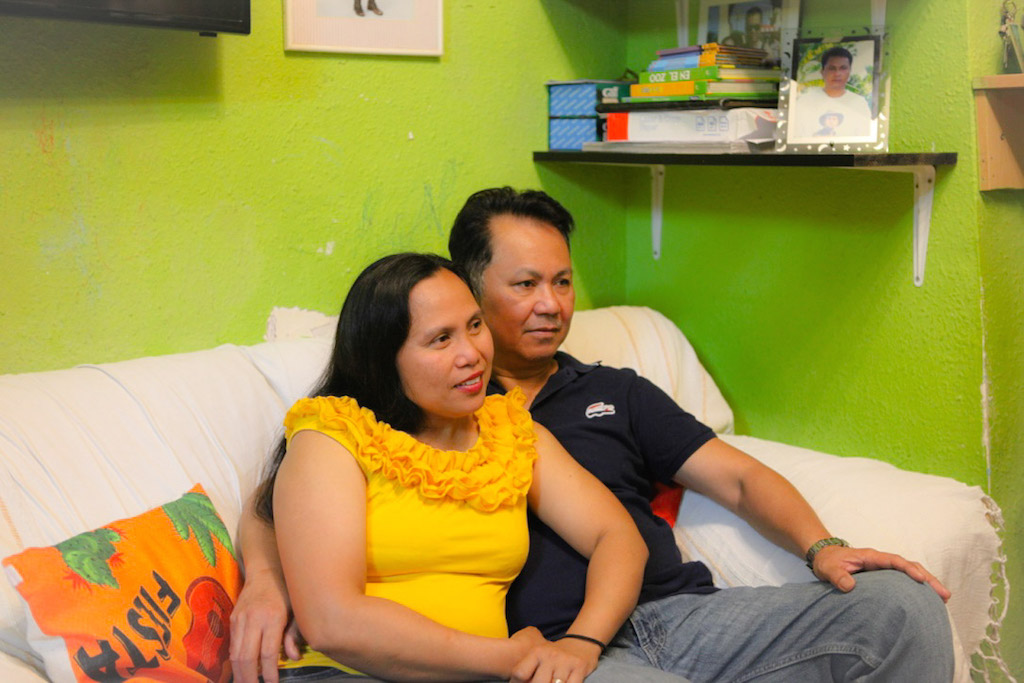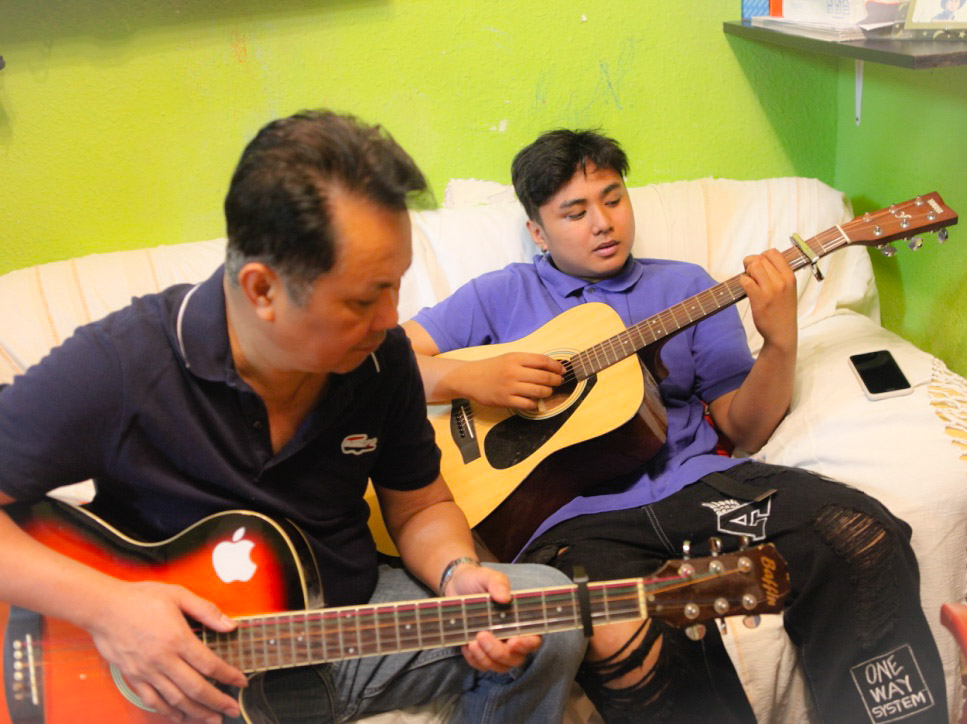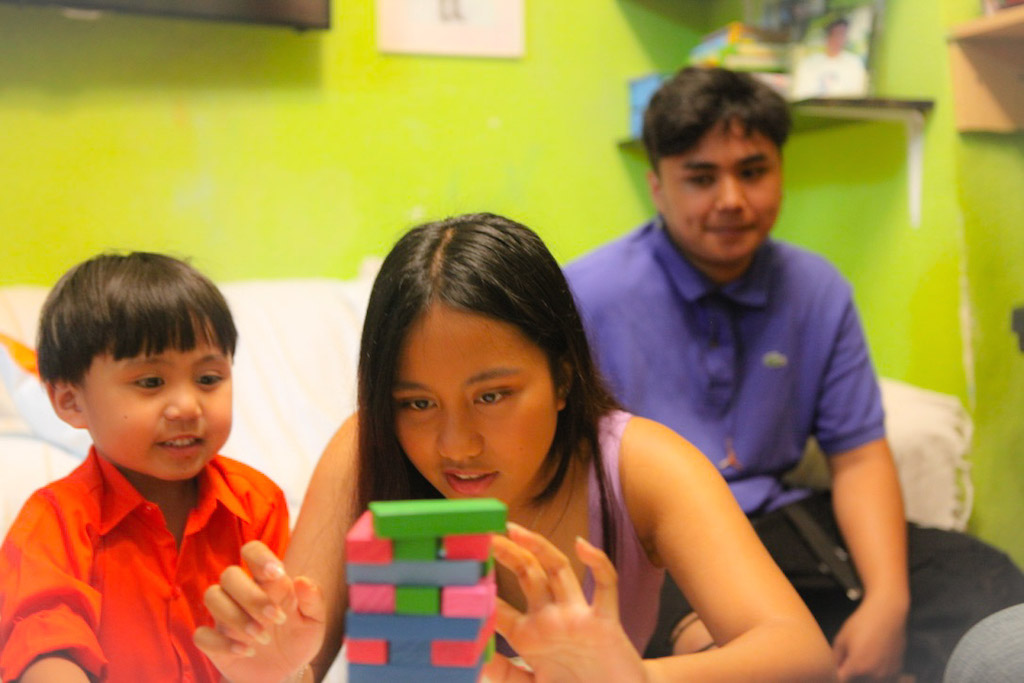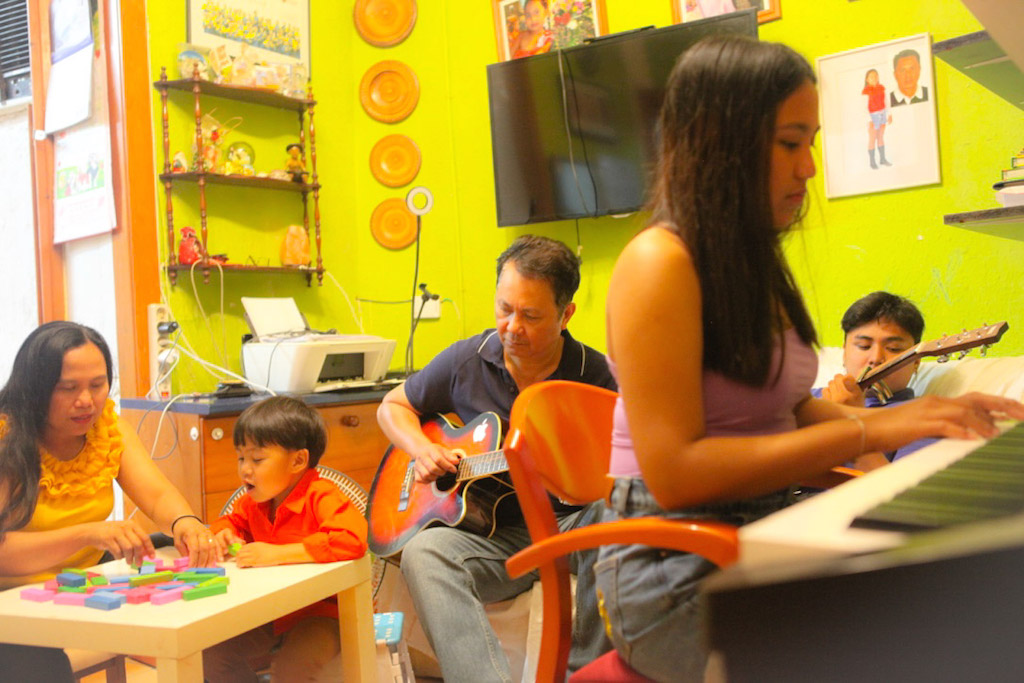Bringing their kids to Spain through reagrupación familiar for Filipinos was easy for Pher and Badeth Ramos, an OFW couple. But they were not prepared for the challenges that came after.
Thirteen years ago, Badeth and Pher Ramos took their kids to Cindy’s and treated them to their favorite spaghetti meal. While Franzy and Nina were enjoying their food, Badeth, in choked voice asked them, “Will you cry if Mama leaves?” “Where are you going, Mama?,” asked one of them. “To Spain so that we can give you both a better future. Don’t worry I will get you and Papa soon. You can go to a nice school, have nice clothes, new shoes and toys.” Badeth tried to hold back her tears. The kids looked at her and chorused: “Yehey!”
She didn’t expect her kids’ reaction but was relieved that they didn’t seem to mind. “Maybe it was the idea of having new toys that made them excited. But it was better for me. I couldn’t bear to see them cry.”
Badeth, 46, was a grade school teacher at St. Mary’s College in Ilocos Sur when an offer to go to Spain landed in her lap with the help of Pher’s Barcelona-based sister. Although she was doing well as an educator, her salary was way lower than what she would earn in Spain. Pher’s income as a farmer and a tricycle driver wasn’t enough to give their family a comfortable life.

Life away from her kids was unbearable but Badeth needed to plug away. She made sure to call her children every week and made good her promise to send clothes, shoes and toys back home. When she reached her first year, her employer granted her a month-long vacation in time for Franzy’s 7th birthday.
“At the airport, Nina didn’t recognize me. She was aloof. I was hurt,” narrates Badeth.
From that incident, she resolved to expedite her family’s visas to follow her to Spain.
Reagrupación familiar for Filipinos
The family reunification visa or reagrupación familiar allows a non-European citizen who has renewed his or her initial Spanish residence authorization, to bring their spouse, children (below 18) or parents (over 65) to Spain.
In 2011, Pher’s visa got approved. The moment he landed a permanent job after months of searching, he and Badeth immediately rented a flat and started to process their children’s visas through reagrupación familiar for Filipinos. Finally, on a cold day in January 2013, Badeth got to hug her kids again.
One time, there was a party at school and we had to bring pica-pica. I didn’t know what pica-pica was except that it meant food so I brought rice. Everybody laughed at me because pica-pica actually meant finger foods. I was very embarrassed and angry.
Franzy, a Filipino expat kid on integrating in a Spanish school

The kids were here, but…
Franzy and Nina would later learn that their parents were both working as live-in domestic employees who only had weekends as days-off and they would be living on their own.
No matter how much Badeth wanted to find a live-out job, “utang na loob” prevented that thought. It was her employer who signed for her to have the Spanish work visa. She was also scared of not being able to find a job right away in case she left.
Badeth and Pher, hired a babysitter to accompany the kids at night, take them to school and pick them up afterwards. Badeth would prepare the food for the week and put them in the fridge, call them before bed to give instructions and help them with their homework.
We didn’t speak Spanish, no friends, and the students called the teachers by their first names. One girl told me that if I wanted to belong, I had to curse, to say joder. I felt bad but I copied them.
Nina, a Filipino expat kid, on integrating in a Spanish school

The kids were not alright
When later asked why they didn’t feel sad when their mother told them about her leaving, Franzy, now 18, says, “I don’t actually remember that day. Nina was four and I was five. We didn’t really think our mother would be that far. We still had our dad, our grandparents and uncles and aunts.”
Nina,17, remembers how her mother would call them every week and send them nice clothes and toys.The absence of their mother didn’t affect their performance at school. They remained happy and never thought that they had an incomplete family. “But when Papa followed Mama to Spain, we felt sad,” adds Nina.

Moving to Spain was a huge culture shock for Franzy and Nina. They also dreaded school.
“We didn’t speak Spanish, no friends, and the students called the teachers by their first names. I tried to interact but my classmates laughed at me. One girl even pinched me,” relates Nina
The school provided special Spanish and Catalan classes for them to catch up with the lessons. Franzy and Nina tried their best but there were some setbacks. “One time, there was a party at school and we had to bring pica-pica. I didn’t know what pica-pica was except that it meant food so I brought rice. Everybody laughed at me because pica-pica actually meant finger foods. I was very embarrassed and angry,” narrates Franzy.
Adjusting to their new environment and the absence of their parents took a toll on Nina. She would cry every night and beg her mother to come home. It also didn’t help that some of their classmates would pick on them. “One girl told me that if I wanted to belong, I had to curse, to say joder. I felt bad but I copied them,” explains Nina.
Franzy’s way of integrating was to fight back. Known in his family for being temperamental, he had his fair share of physical altercations with some of the bullies who would later leave him in peace.
Not living with their kids, Badeth and Pher were having a tough time. “Pher was always worried, especially at night.” In 2016, Badeth finally left her live-in job. She and Pher did the math. The money they were paying the babysitter was just the same as the money she would lose from working live-out.
Badeth noticed that the kids gradually became more confident and more participative in school and in Coro Kudyapi, an all-Filipino children’s choir where they have been members since 2014.

Raising a family in Spain
Badeth and Pher would always joke of having a third child made in Spain. In 2018, the joke became a reality. No one was more surprised than them when discovered that Badeth was up the duff. “We didn’t expect it. I cried and cried. It meant that we would start all over again,” recalls Badeth.
The idea of sending the baby to the Philippines came about but Pher was against it. “I didn’t want the baby to experience what Franzy and Nina did when we left them,” explains Pher, 54. When Jaden was born, Badeth´s previous worries came to naught. “Jaden is our source of joy now. We are glad we didn’t send him home.”
Franzy and Nina have never held a grudge toward their parents for leaving them behind.They understand that what they did was for their own good. Now in their teens, they want to visit the Philippines one day and see their childhood friends.
According to UNICEF, there are approximately nine million Filipino children who have at least one parent abroad. And most of them are hoping to join their parents someday. Badeth’s family’s journey was not as easy as it seems. It was an uphill climb that took them years to finally settle down together as one and complete family.
This article was first published in TFEM Summer Issue 2022.
What's Your Reaction?
Nats Sisma Villaluna has been serving the Filipino community in Spain for more than 15 years. His volunteer works include teaching Spanish to Filipinos, and as artistic director of the Coro Kudyapi, a group of musically inclined young Filipinos in Barcelona. His passion to serve the Filipino community now extends to other countries in his role as Publisher and Editor-in-Chief of the new The Filipino Expat Magazine.



